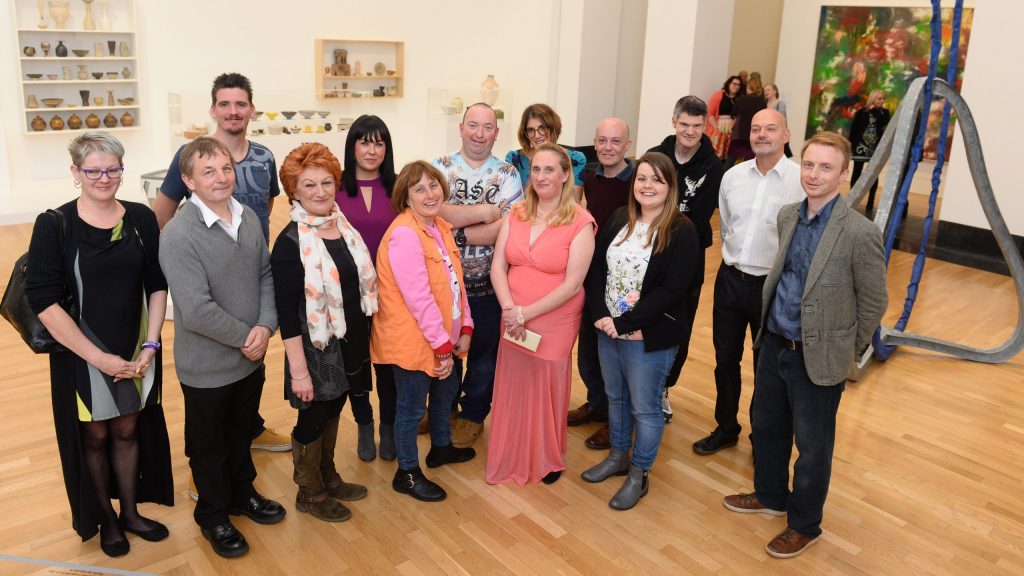Recommendations: Empowering Collections
Collections have huge potential to empower people. In an era of social and political division, the hollowing out of our towns and cities, the climate crisis and environmental degradation, and demographic change, many museums increasingly see their role as supporting health and wellbeing, placemaking, learning and skills development, and active citizenship.
Museums use their collections and the stories they can tell to bring people together, promote understanding and equip people with the facts and understanding that are relevant to the issues they are passionate about.
In the next decade museums will use their collections to empower people to be active participants in our society, giving them the insight and tools they need to design solutions to contemporary problems, challenge injustice and create stronger communities. In practice, this means democratising museum collections – promoting co-curation, co-production and participation.
Taking this approach, museums will also have to confront some of the criticisms levelled at their historic collections practice and engage with decolonising critiques of museum collections.
“Seeing yourself represented in culture is necessary to value and want to participate in it. Strategic collecting from underrepresented groups and additional narratives on existing collections are needed.”
Collections 2030 respondent, Wales
We recommend:
1. A culture change in museums and collections practice
Museums and the people that work in and with them need to expand on the idea of basic collections work, prioritising projects that are ‘use-led’, with clearly identifiable outcomes and high levels of participation with museum users and communities.
In order to deliver this:
– museums should work towards more integrated and fluid internal structures that enable all staff to work with collections and communities and to share their expertise in both areas
– museums should consult regularly with audiences on how collections are researched, presented and used, and should align their collections work with the overall mission and vision set out by the museum; a diversified workforce will also contribute to this culture change
– sector bodies should promote a flexible approach to collections care and documentation following recent reviews of the Accreditation Standard, Spectrum and the Code of Ethics
– funders should develop new funding streams which encourage a use-led approach to collections practice; this funding should encourage public participation alongside professional knowledge and expertise, and ensure that collections play a part in health and wellbeing, placemaking and active citizenship projects.
2. A proactive approach to the democratisation and decolonisation of museums
Collections are increasingly contested by different groups in society. Many museums have sought to play a positive role in these discussions, but there is a lack of information about how to approach issues related to decolonisation and restitution.
Sector support organisations, the MA Ethics Committee and museums should work together to establish new guidance for the sector and ensure that museums take a proactive approach in the reinterpretation and decolonising of collections.
“Although museums have addressed some of these issues over the last 20 years, it is only now becoming an explicit part of museum agendas. One practical area we can address is changing the content, tone and terminology of the colonial histories that some collections reflect. We will need to undertake provenance research, conduct collaborative research with source communities, and we will need to consider how we can support a more diverse range of voices in our curatorial decisions.”
Collections 2030 respondent, Scotland
3. A focus on reinterpretation of out-of-date displays
Many museums and museum users complain that displays and labels are out of date, often featuring ideas and language that are outmoded or have been superseded by new thinking and research. Museums should focus on updating public displays, and should use co-produced and project work as a basis for updating them.
“To truly realise the potential of co-curation, museums need to accept that empowering others necessarily means giving up some of the power they currently have to develop collections and frame the use of collections.”
Collections 2030 respondent, South East England

Case study: “Who Decides?” at Amgueddfa Cymru – National Museum Wales
Who Decides? was a major contemporary art exhibition curated collaboratively with the Wallich, a Welsh homelessness charity. Through this partnership the museum aspired to use a participatory approach in curating the museum’s permanent collection to challenge perceptions of homelessness and to diversify volunteers and audiences at museums and galleries.
The curation and organisation of an entire wing of the museum was delegated to a group of 10 service users from the Wallich. They worked on every aspect of the exhibition including selecting artwork, writing interpretation, installation and delivering activities.
During the exhibition’s 10-month run there were over 96,000 visits. Part of the exhibition delegated authority to visitors, with 8,000 visitors voting for works to be released from an in-gallery store, integrating new pieces into the exhibition monthly.
Visitors commented on how refreshing the interpretation was due to the opinions, stories and connections. They embraced the opportunity to get involved in conversation, attending Wallich curator-led tours and filling more than 9,000 conversation prompt feedback cards.
The Wallich curators also felt transformed from self-confessed ‘gallery-phobes’ to passionate advocates. They contributed over 1,000 hours of time. Their commitment exceeded expectations, especially given the ongoing challenges some face.
They completed an accredited Welsh art course. One of the participants who had never visited a gallery before is due to start an art foundation course. The group volunteer regularly at the museum and are now mentoring new volunteers. They have learnt transferable skills which have supported them to find new opportunities; two participants have now gained paid employment.